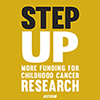Relapse or Recurrence
Sometimes, despite the best care and significant progress made in treatment, cancer comes back. When this happens, it is called a recurrence or relapse. The likely relapse occurs is that a few of the original cancer cells survived the initial treatment. Sometimes, this is because cancer cells spread to other parts of the body and were too small to be detected during the follow-up immediately after treatment.
When cancer recurs, you may feel familiar reactions, such as shock and disbelief. You may wonder, "how could this happen?" or “why, if we did everything as instructed, would the disease return?” Some parents often report feeling guilty, as if they somehow deceived their child by providing false hope of a cure. It is important to understand that you did not do anything wrong. It is also not unusual for families to feel anger at the medical team as who seems to have “misled” them. You should feel free to discuss these feelings with the health care team.
Many parents report even stronger feelings during relapse than at diagnosis. Families commonly feel sad, angry and overwhelmed about their circumstance. Your response may be even more complicated than the initial diagnosis, in part because you have a better idea of what to expect. And this time you may feel “different” from families you know whose children have not relapsed.
While struggling with these various emotions, you will need to discuss with the healthcare team what the new treatment goals are and how best to achieve them. Questions that you should consider discussing include:- What is the chance that this relapse can be cured permanently?
- What is the chance that this relapse can be controlled for a period of time (even if it does not eventually result in cure)?
- What are the standard treatments in this circumstance?
- What role do research options play in this circumstance? Are these available in my treatment center or would I need to consider travelling elsewhere?
- What are the likely impacts (medical, psychological, social) of each of these options for my child?
- Is it appropriate that palliative care be involved, even if there is still hope for cure?
- How will we monitor the cancer now?
- Why did this happen to my child?
Some families feel a greater desire to get a second opinion when deciding on treatment for relapse. This is understandable as you seek reassurance that you are doing everything possible to help your child and make sure he or she gets the best, most effective treatment. If you wish to request a second opinion, you should discuss this option with your health care team so they can provide a detailed and accurate summary of your child’s previous therapy to those providing a second opinion. Many families also consider complementary or alternative therapies in the setting of relapse. Again, it is important to discuss this with your health care team.
At relapse, you and your family may need help finding strength again. There may be a sense that your basic endurance is being tested. The negative emotions of anger, sadness, fear, preoccupation and hopelessness often need to be redirected into the promise of a new protocol or resetting the goals for your child and family. It is important to maintain realistic hopes – hopes that may still focus on cure but also, if cure is not possible, upon optimizing the time you have. Your child’s cancer center has a number of resources available to assist you and your family, from social workers to psychologists to local support groups to palliative care teams.
The chances for successful treatment of a relapsed cancer are unique to each patient and should be discussed with your health care team. Success depends upon the original type of tumor, what treatment was initially used, the length of time since the end of treatment and the general health of the child.








